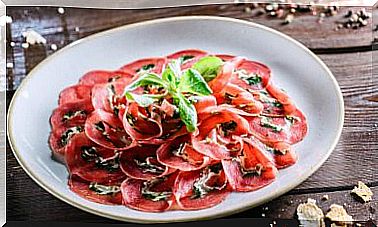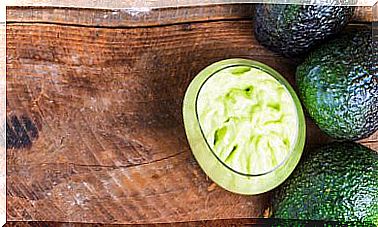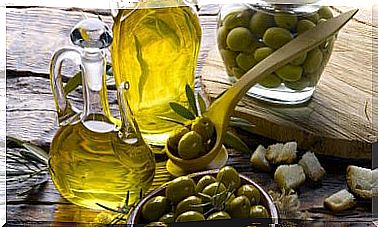8 Fermented Foods For Better Intestinal Health
Fermented foods are characterized by their contribution of beneficial bacteria that help us improve our general digestive health and fight different recurrent infections

Fermented foods have been a part of the human diet for centuries and have a positive impact on health in many different ways. Here are the 8 best fermented foods for better gut health.
The beneficial bacteria that live within the body have become famous for very good reasons. These microorganisms help digestion be much better, increase immunity and can even help you achieve the size you want. For all this, it is ideal to stimulate their growth to improve and maximize well-being. In this sense, one of the best ways to achieve this is through fermented foods.
Fermented foods are characterized by containing probiotic bacteria similar to those that live in the intestine. These are some of the fermented foods that you could include in your diet if you want to get a good dose of probiotics.
1. Tempeh

Tempeh is made from naturally fermented soybeans. It usually has a light and pleasant nutty flavor. This food is native to Indonesia, where It is very popular for its fiber, vitamin and protein content due to the fermentation process. It is usually used in vegetarian diets as u n substitute for meat.
Unlike tofu, which is also a product derived from soybeans, tempeh has a stronger flavor and firmer texture.
If it is not a common ingredient in your diet, we suggest that you start trying little by little until your palate gets used to it.
2. The miso
Miso is a flavoring paste made from seeds of soy , cereals such as fermented barley, rice, buckwheat, millet, rye, wheat, hemp seeds and sea salt. On the other hand, e It has been considered a healing food for many centuries in both China and Japan.
However, its real popularity began only about a hundred years ago, because it adds a pleasant flavor to foods. This is one of the best fermented foods because:
- Contains enzymes that improve digestion.
- Provides carbohydrates.
- It is rich in lipids, vitamins, minerals and proteins.
Unpasteurized miso can rebuild the intestinal flora or microbiota when it has been impaired by diets high in meat, sugars, and chemicals. .
3. Sauerkraut
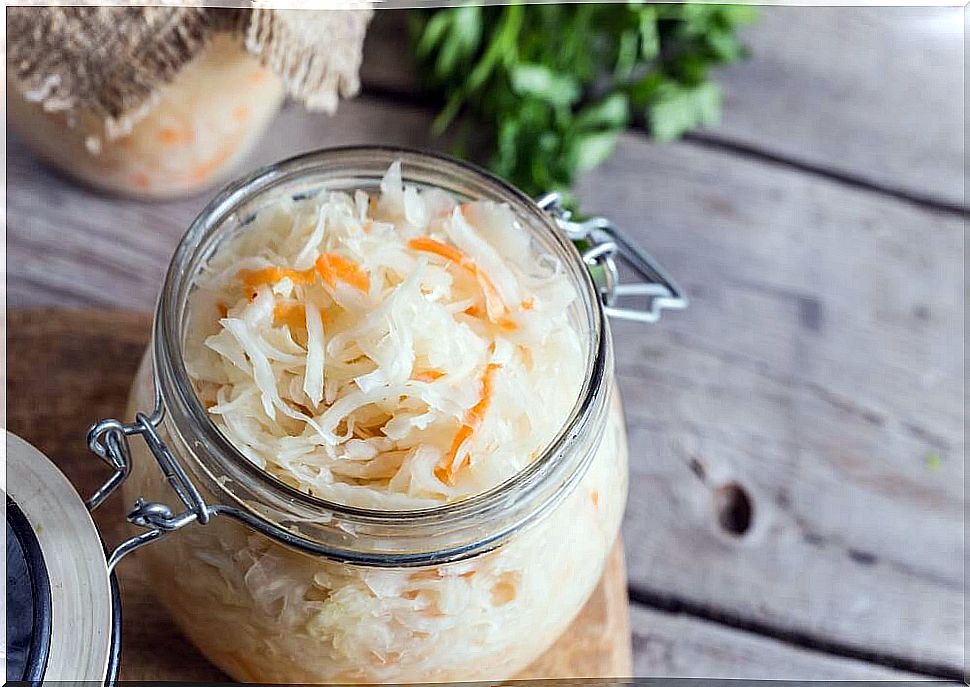
Sauerkraut is one of the fermented foods most consumed in Germany and in some areas of France, Poland and Russia . This food is prepared by fermenting the cabbage leaves in salted water.
The mixture is placed in an anaerobic container so that the salt dehydrates the vegetables and ferments properly. It is usually used as an accompaniment to dishes that are seasoned with dill or pepper, pork and some sausages such as Ham .
4. Yogurt
Probiotic yogurts are the most commercialized and consumed. You should not take any special care with them since, although they are consumed in large quantities, they do not represent any danger to health.
Conversely, help reduce the incidence of yeast infections and regulate problems such as flatulence, diarrhea or constipation if you consume at least one glass a day, according to a study on the nutritional properties of yogurt.
5. Kefir

Kefir is a dairy product that is fermented with fungi and bacteria from the Caucasus. Milk is fermented through a lacto-alcoholic reaction that causes lactose to transform into lactic acid.
The appearance of kefir is similar to cauliflower, but with a softer and gelatinous texture. This food is rich in probiotics, yeasts, lipids and proteins that promote intestinal health.
6. Kombucha
Kombucha is a drink that is made by fermenting tea to which sugar is added as food for microorganisms to ferment it. Although it is colloquially called kombucha mushroom , the microorganisms that appear in the mother culture of kombucha are a mixture of genera and species, and not just mushrooms (yeasts).
On the other hand, kombucha has been valued over many generations due to its probiotic benefits that will help you have a good intestinal flora and improve the immune system. This compound promotes the production of hyaluronic acid and improves your metabolism due to its content of B-complex vitamins and digestive enzymes.
All of the above translates into an increase in your energy levels and an improvement in your cardiovascular health.
7. Kimchi
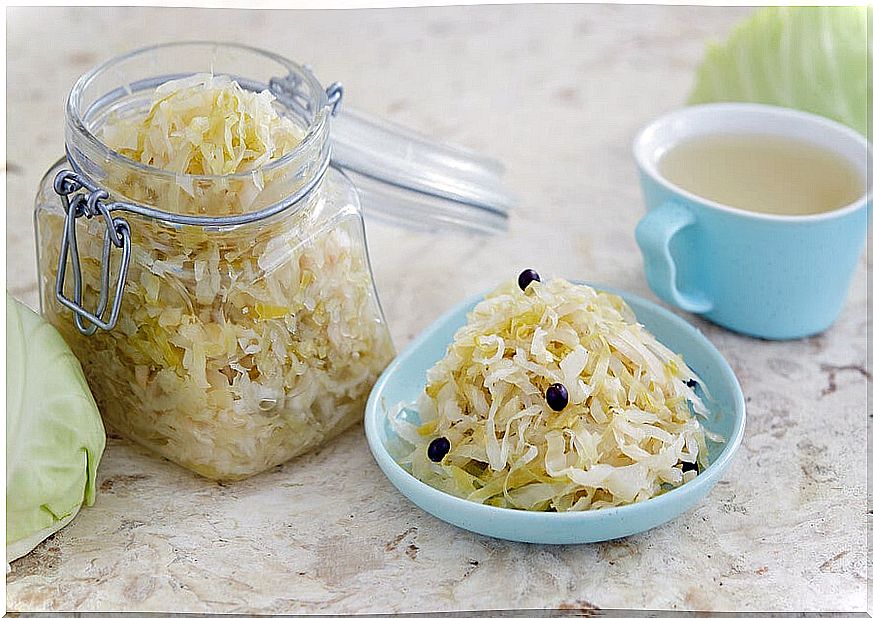
Kimchi is another of the fermented foods and one of the most consumed in Korea. It is a live food that has a slight lactic fermentation when incorporating salt , although its preparation varies according to the region where it is carried out.
In North Korea, it is usually prepared with a smaller amount of chili and salt. In South Korea, salt and red chili are often used in large quantities.
Kimchi is high in:
- Calcium
- Carotenes
- Protein
- Carbohydrates
- Vitamins (A, complex B and C)
8. The natto
Natto is the result of the fermentation of soybeans, it has been consumed for thousands of years in Japanese culture. It is very nutritious and easy to digest but has a strong flavor. Provides vitamins, enzymes, essential amino acids and nattokinase.
If you have never tried fermented foods, to start consuming them you can put yogurt in the smoothies, eat a miso soup or drink a refreshing kefir. Fermented foods can add different and interesting flavors and textures to your diet.




